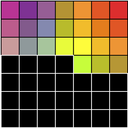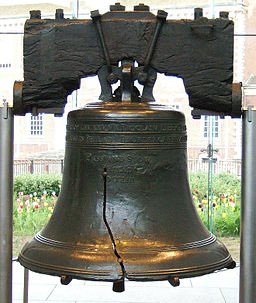
It is one of my favorite things, I should say, because I love holding babies (who doesn't?), and also because there is something indescribably powerful about gazing into the face of new life and thinking about what the future has in store.
We love the birth of babies because the moment carries with it such amazing potential. We think, either out loud or quietly in our minds: Will this child grow up to be a link in the chain to carry forward our tradition? Will this one grow up to invent or discover something that makes the world a better place? Will this baby, someday, think thoughts that will change the world? I am awed by the infinite possibilities contained within the tiny package of a newborn and delight in the opportunity to bring blessing upon new life.
This week's Torah portion includes an important list of blessings that I will remark upon for the occasion. In the portion Bechukotai (which is the second half of the Torah double-header read this week outside the land of Israel), the Torah introduces the blessings in this way:
If you follow My laws and observe My commandments to do them, I will grant you rains in their season…
–Leviticus 26:3-4
Commentators have long asked why the opening condition is stated in two different ways. Why does the text have to say both "follow My laws" and "observe My commandments"? Wouldn't either phrase alone suffice? Why both?
Rashi says that both phrases are necessary because, if only one phrase were present, a person might think that God is asking only that we do what is written in the Torah. That, according to Rashi, is not enough. In addition to observing the mitzvot, we also are asked to exert ourselves ("follow") in the study of Torah. Every commandment and every law in Torah has a dual identity – it is an act for us to perform in the physical realm, and it is a thought for us to engage in the realm of ideas and spirituality.
To me, that suggests a wonderful way of thinking about the blessings we wish upon a newborn. Certainly, we wish the baby a life that is free of unnecessary hardship and mishaps. We want the baby to grow up physically secure. But that is not enough.
When we wish blessings upon a child, we want more than physical health and material security. We want to wish for a life of peace within the mind, a life of understanding of self and the world, a life of wonder, excitement, love, and participation in community.
The blessing that we wish for a child – one who represents all of the infinite possibilities of the future – is the blessing of Torah. It is not just the obligation to perform mitzvot, but the blessing of engagement with the world, the experience of God, and the discovery of meaning.
Other Posts on This Topic:
Bechukotai: Being Commanded, Choosing Joy
Nine Students, a Baby and a Wedding



 RSS Feed
RSS Feed
